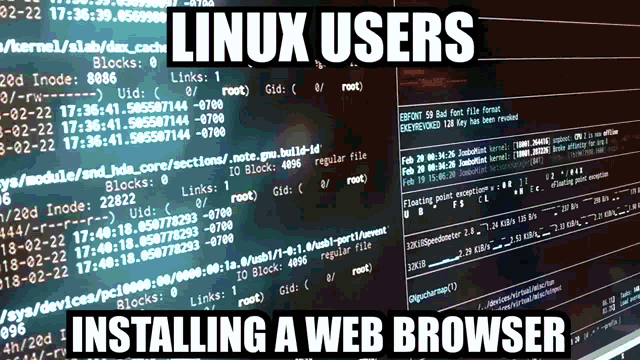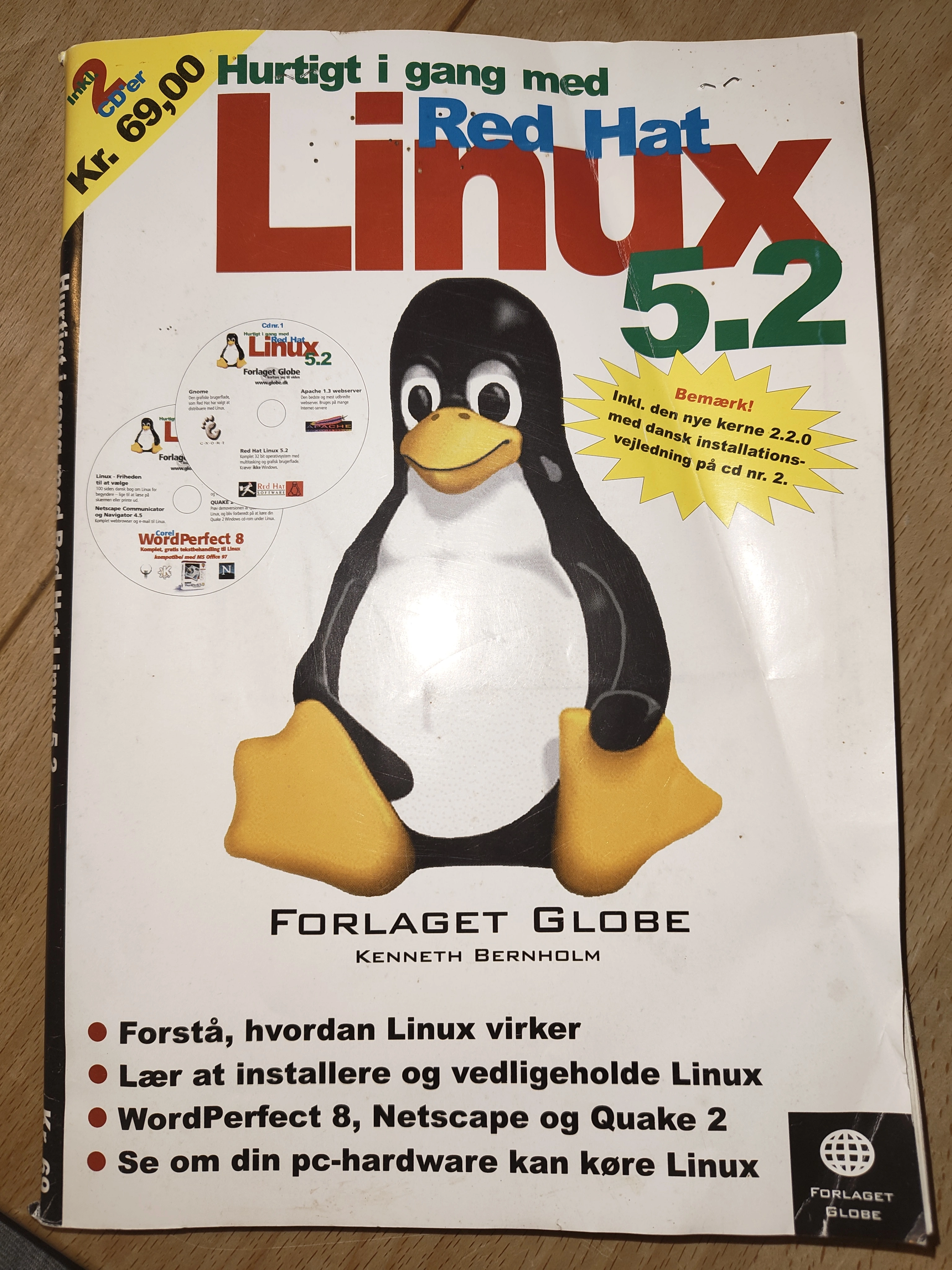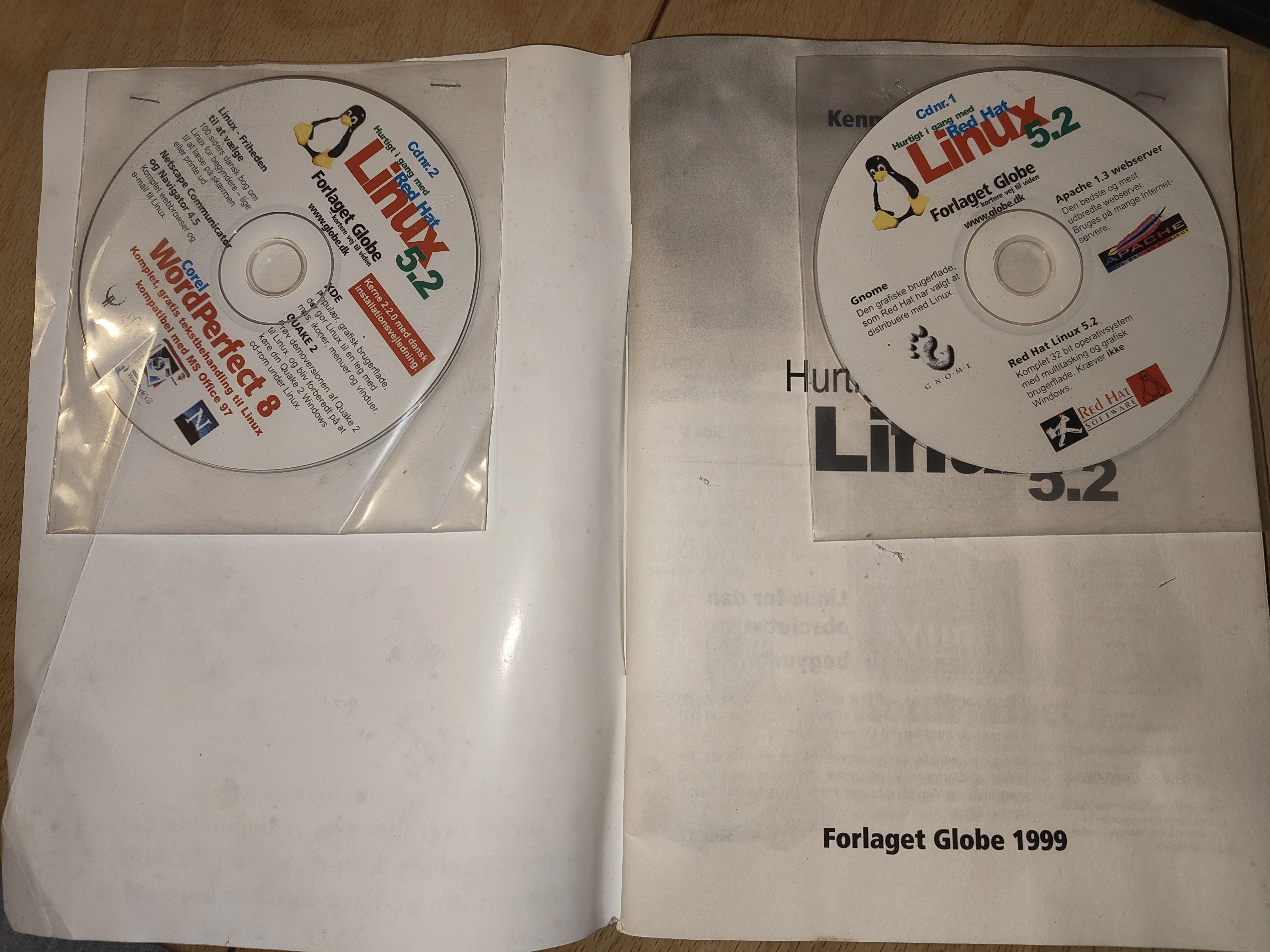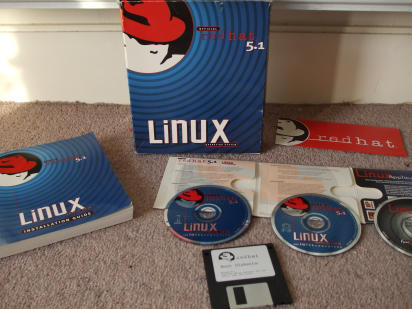I’m new to #Lemmy and making myself feel at home by posting a bit!
My first Linux distribution was elementary OS in early March 2020. Since then, I’ve tried Manjaro, Arch Linux, Fedora, went back to Manjaro, and since early January 2023, I’ve landed on Debian as my home in the #Linux world.
What was your first Linux distro?
Welcome to Lemmy stranger.
Slackware back in the early 90s on a Compaq 386/SX20 💾
Go Slackware!
Honestly it still feels like home. Because I was kind of a moron and figured it would mean less to figure out, I registered darkstar.org (the default domain Slackware came set up with).
I few years later I actually emailed Patrick Volkerding about something and he mentioned it… I felt this strange mix of pride and shame ;-)
Well shit you got me beat I ran Slackware from 3.5 disks in the 90s on a 486dx2. I sent away for those disks to be mailed to me. I even did something crazy with that machine I had lots of ram so I sent them off to a company to combine them together. I want to say it 8 or 16 megabytes. Bit I can’t remember now.
That’s great, I didn’t even know that was a service you could get. I remember being really disappointed when I realized that a SIMM would not actually fit in one of my 386s ISA slots 😅
Slackware 3.1 late 1996. Great fuckin’ year that was.
Also Slackware!
But I skipped from my 286 to a Pentium 133 (then went a bit backwards to a 486 dx100, then ahead to some cyrix and AMD).
It was such a cool time for CPUs. Going up a generation was like getting a supercomputer. And Intel had those cartridge CPUs…
Such a wild time… I started building PCs for people (even my gym teacher), it was so fun - and yeah, such a huge jump every time!
Now I have the same build for nearly 15 years with upgrades along the way, and my servers are all decom’d t/m/m PCs.
Edit: Jump had a typo
deleted by creator
The Alien repo was a godsend
I used Vector Linux 3.2, which was Slackware based, mostly because it was a small(ish) download on my friend’s Cable internet connection. Shortly after I moved to real Slackware. This was probably 2003/4

Floppy sets represent!
Kali Linux. Because I was a kid who wanted to be a hackerman.
❤️ Ah yes, the hacker-man vibes!

After that I used Ubuntu with XFCE for 2 years, Now settled in Fedora with Gnome for like 4 years straight.
Watching something compiling is kinda like the reward for getting it to compile in the first place…
My monitor is visible to a public footpath and I honestly am waiting for the day that I get a knock on the door from the cops because Jo Public saw me do a system update
sudo pacman -Syu 💀
This, but backtrack 5 (the one just before kali). On a laptop that’d take several eternities to brutforce an md5 🤣
Red Hat, before the enterprise stuff, back in 1999. Installed from a CD found in a book from the library
I’ve got a Red Hat from '99! Found in grandpa’s garage.


Nice! The one I found looked like this. I remember picking it up because I thought the logo looked cool. I think it was 5.2 though

This was very similar to the box I had but in my case it was mostly white. And the manual was waaaay bigger. Like almost the size of a phone book. I bought mine in 1999 too. Installed from CD. I bought mine for $110 from a stationary shop (since I lived in a student flat and my flatmates would have probably murdered me if I’d downloaded it over dial up that also had a monthly download limit). Good times lol.
YES! That was the same distro that was my entry, it came along with the book Linux for dummies. However mine came on a single CD. Must have been the “lite” edition 😄
Oh, back in 1999s, very epic! ❤️
Same for me, it was Red Hat Linux 6.1 (Cartman). I got it from a CD on the front of a PC magazine.
Damn! Same here, red hat 99, but switched to Debian quite fast
am a simple noob who started with Mint, and remain on Mint on my main gaming machine.
i have fun distro-hopping on my other old, cheap laptops though
Mint is a favorite here too! It just works! ❤️
Real!
After installing and restoring Arch for the third time in 1.5 year I decided to go back to Mint. In the past 5.5 or so years, nothing needed to be reinstalled or restored; Mint’s more stable than Windows by now!
There’s something about simplicity that is underated.
Technically my first ditro was SuSE a loooong time ago but I didn’t stick with it. Then back when Ubuntu became he new hit thing I tried that, but again didn’t stick with it.
I have now loaded up Mint and that’s the one I’m running with. Mind you, all distros have come a long way since my prior Linux dealings but Mint is the one to make me permanently switch.
Ubuntu > Mint > Manjaro > Arch > PopOS > Debian
(History, not ranking [Debian wins])
Debian wins
Testify, brother.
Same, but I skipped manjaro and popOS. And I used slackware at the college computers. Debian still wins for me, it came a long way.

Slackware96 from Walnut Creek purchased at Staples back when software came in boxes with manuals. Netscape Navigator 3.0 anyone?
I got a T-shirt from Mozilla in the early 1990’s and foolishly wore it to death. My Linux tie pin is somewhere, but I’m sure that my penguin tie has died, as have the Debian Potato CDs with boot disks for x86, PowerPC and SPARC.
I started with Mandrake 6.1 when the there were lots of 9’s or 0’s in the year
Then bounced from Slackware/opensuse/Red Hat/Debian/Gentoo/BSD
Now running Kde Neon and MacOS (Debian and BSD as server OSs)
My first Linux install was Ubuntu 5.10 Breezy. Got those wobbly windows going and felt like a fucking king.
Ubuntu in the mid 2000s, but it’s PopOS that made me a fulltimer ~2 years ago. I don’t use it anymore but I’ll always be thankful for it.
SuSE in 1996. Then Debian between mid-1997 and late 2023, NixOS since.
I’m not a big distrohopper…
Why NixOS? I’ve been using Debian since Slink and am interested to hear, what made you move?
Not the guy who first commented, but NixOS is fun because you can have the whole config in a git repo, and can easily reproduce. Main drawback is that Nix as a language is insane and that a lot of packages still aren’t available
While I am not a fan of Nix the language, it is no more insane than ansible or kubernetes yaml soups.
As for packages… nixpkgs is by far the largest repo of packaged software. There are very few things I haven’t found there - and they are usually not in any other distro either.
I switched to NixOS because I wanted a declarative system that isnt’t yaml soup bolted onto a genetic distro.
By 2022, my desktop system was an unmanagable mess. It was a direct descendant of the Debian I installed in 1997. Migrated piece by piece, even switched architectures (multiple times! I386->ppc-i386->amd64), but its roots remained firmly in 1997. It was an unsalvagable mess.
My server, although much younger, also showed signs of accumulating junk, even though it was ansible-managed.
I tried documenting my systems, but it was a pain to maintain. With NixOS, due to it being declarative, I was able to write my configuration in a literate programming style. That helps immensely in keeping my system sane. It also makes debugging easy.
On top of that, with stuff like Impermanence, my backups are super simple: btrfs snapshot of
/persist, exclude a few things, ship it to backup. Done. And my systems always have a freshly installed feel! Because they are! Every boot, they’re pretty much rebuilt from the booted config + persisted data.In short, declarative NixOS + literate style config gave me superpowers.
Oh, and nixos’s packaging story is much more convenient than Debian’s (and I say that as an ex-DD, who used to be intimately familiar with debian packaging).
Thank you. Glad I’m not alone in this quest with that kind of history.
My current desktop is Wheezy inside a VM - also across several platforms, but VMware, by design , doing the heavy lifting.
Anything of note, essentially everything except Audacity, is running on a Bookworm Docker host with X11 forwarding and reverse mount sshfs, so all the container “sees” is the directory I give it.
I’ve made several attempts to move away from Wheezy, but there’s too many scripts in my ~/bin directory to make that simple.
The “fresh paint smell” experience for me comes from a docker pull or docker build, but it does require hardware capabilities that died eight months or so ago, when my 64 GB RAM iMac died. No data loss, just endless frustration.
At the moment I’m exploring EC2 on demand. I suspect that for the $10k I previously spent on hardware, I can always have the latest on tap, but I’m still trying to get real-time audio editing to not be a weekly disaster. Getting closer, but not quite there yet.
I’ll have a squiz at NixOS, seems like an interesting approach.
Much obliged for sharing your experience!
Debian Slink
Before that, Windows NT, A/UX, Solaris and VAX/VMS.
Before that, Vic 20 and Apple II
Still using Debian every day whilst navigating the perils of MacOS.
Mandrake
Mandrake 6.0 in 1998. The kernel was still 2.2, and KDE 1.1.1.
Me as well. I don’t remember where / how I got the CD. Linux as a desktop has come so far since then!
This brought back some memories: https://www.mandrakelinux.org/
my first ‘distro’ was slackware, on floppy disks. then debian or a flavour of, mainly, ever since. i’ve never really strayed too far from debian and apt over the years but i have tried most everything.
Ubuntu, like a lot of people my age (2000s)












